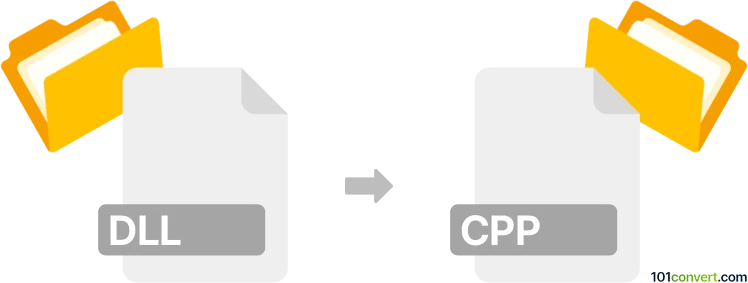Convert DLL to CPP
How to attempt DLL to CPP conversion using decompilers and the best tools for reverse engineering.

How to convert dll to cpp file
- Other formats
- No ratings yet.
101convert.com assistant bot
2h
Understanding dll and cpp file formats
DLL (Dynamic Link Library) files are compiled binary files used by Windows operating systems to provide shared code and resources for multiple programs. They contain executable functions and routines but are not directly readable or editable as source code.
CPP files are C++ source code files containing human-readable code written in the C++ programming language. These files are compiled to create executable programs or libraries, such as DLLs.
Can you convert dll to cpp?
Directly converting a DLL file to a CPP file is not straightforward because DLLs are compiled binaries, while CPP files are source code. The process of obtaining source code from a DLL is called decompilation or reverse engineering. This process attempts to reconstruct readable C++ code from the compiled binary, but the results are often incomplete and may not match the original source code exactly.
Best software for dll to cpp conversion
The most effective tools for attempting to recover C++ code from a DLL are decompilers and disassemblers. Some recommended options include:
- IDA Pro: A powerful disassembler and debugger that can analyze DLL files and help reconstruct C++ code.
- Ghidra: A free and open-source reverse engineering suite developed by the NSA, capable of decompiling DLLs to C-like pseudocode.
- Hex-Rays Decompiler (plugin for IDA Pro): Converts binary code into more readable C-like code, which can be saved as a CPP file.
To use these tools, open the DLL file in the software, analyze it, and use the decompiler feature to generate C-like code. You can then copy this code and save it as a .cpp file. For example, in Ghidra, use File → Import File to load the DLL, then use the Decompile window to view and export the code.
Important considerations
- Decompiled code may not be identical to the original source and can be difficult to understand.
- Reverse engineering DLLs may violate software licenses or copyright laws. Always ensure you have the legal right to decompile a DLL.
- Some DLLs are written in languages other than C++, so results may vary.
Note: This dll to cpp conversion record is incomplete, must be verified, and may contain inaccuracies. Please vote below whether you found this information helpful or not.